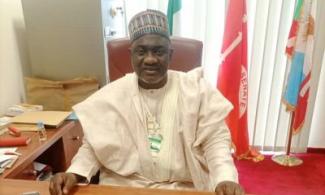
Nigeria is setting its sights on a substantial growth in exports, targeting up to $79 billion by expanding its export capacity under the African Continental Free Trade Area (AfCFTA).
This ambitious goal was revealed by Nigeria’s Minister of Industry, Trade, and Investment Jumoke Oduwole, during a high-level roundtable discussion in Abuja on Thursday.
The session focused on the nation’s progress in implementing AfCFTA protocols and featured a keynote address from Wamkele Mene, Secretary General of the AfCFTA Secretariat.
Oduwole praised Nigeria’s pivotal role in the development of AfCFTA and its leadership in advancing the trade agreement’s implementation. She noted Nigeria’s significant involvement in chairing the Negotiating Forum, which was instrumental in shaping the agreement, and its active participation in aligning national regulatory frameworks with AfCFTA protocols, covering areas such as investment, digital trade, intellectual property rights, and competition policy.
The minister outlined several expected economic benefits from AfCFTA’s implementation, including a projected 15-17% growth in the country’s Gross Domestic Product (GDP), the creation of approximately 11 million new jobs across various sectors, and a 15% expansion in Nigeria’s export capacity, which would translate to a $79 billion increase in exports.
A major focus of the discussion also centered on Nigeria’s leadership in digital trade within the AfCFTA framework. Oduwole highlighted the country’s efforts in launching the Technology Export and Digital Trade Desk, which supports a growing digital economy, as well as its initiatives like the National Talent Export Programme and the Outsource to Nigeria Initiative. Additionally, she pointed to Nigeria’s “Investment in Digital and Creative Enterprises” program and the “3 Million Tech Talent Programme,” designed to close knowledge gaps within the digital ecosystem.
Oduwole also provided compelling statistics to underscore Nigeria’s thriving digital economy, noting that the Information and Communication Technology (ICT) sector contributes 20% to GDP (Q2 2024). She mentioned that e-commerce spending is projected to reach $75 billion by 2025, and digital trade revenue is expected to grow from $5.09 billion in 2019 to $18.3 billion by 2026.
Furthermore, the minister emphasized that Nigeria is actively updating its trade policy to align with AfCFTA objectives. This includes submitting its Schedule of Tariffs and Services, enhancing private sector engagement to better prepare for intra-African trade, and taking steps to improve trade facilitation and ease of doing business in the country.
Oduwole underscored the importance of building strong partnerships with key stakeholders, including the AfCFTA Secretariat, Afreximbank, and other relevant parties, such as the recent launch of the $1 billion Automobile Industry Facility Fund aimed at supporting industrialization efforts. She also called for continued dialogue and capacity building to ensure the inclusive and successful implementation of AfCFTA.
In closing, the Minister urged stakeholders, including private sector leaders, policymakers, and entrepreneurs, to collaborate in removing barriers to trade and enhancing competitiveness. She also highlighted the need for investments in both digital and physical infrastructure to create more opportunities for women, youth, and small and medium enterprises to engage in regional markets.
Oduwole concluded by commending the leadership of the AfCFTA Secretariat under Wamkele Mene’s direction, acknowledging the significant strides made in advancing critical AfCFTA protocols, particularly in the realm of digital trade.





